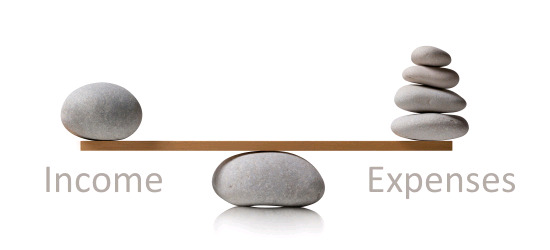It has been over a year since COVID-19 hit. The pandemic’s impact has been very bad for businesses that were forced to downsize or worse, close down. Families feel the pinch on household budgets as family members’ earning capacity is affected.

THE TWO SIDES OF THE BUDGET EQUATION
Managing the household budget during such a time is tricky but there are ways to increase one’s disposable income. Not all these tips will apply to everyone but you may find some suggestions here worth doing on your end to improve your disposable income and somehow make ends meet.
Just to simplify matters, let’s look at two components of a budget: funds available (your liquid assets and earnings) and expenses. At the very least, your available funds should equal your expenses. A better scenario is if the funds are more than your expenses because then you would have something left over as savings. This is the balancing act you need to do — make sure that your expenses do not significantly exceed your available funds; otherwise, you would end up in debt.
 Many would immediately focus on eliminating expenses and that is the best place to start. But that is just one side of the equation! If you have exhausted all means to bring expenses down, look at the income side for a change. If you can no longer cut expenses, create new income streams instead. Even better, if you can cut expenses AND generate new income, you can raise your disposable funds even more.
Many would immediately focus on eliminating expenses and that is the best place to start. But that is just one side of the equation! If you have exhausted all means to bring expenses down, look at the income side for a change. If you can no longer cut expenses, create new income streams instead. Even better, if you can cut expenses AND generate new income, you can raise your disposable funds even more.
TAKE STOCK OF YOUR ASSETS AND INCOME
First, it is important that you have a good grip on exactly how much money you need to cover the expenses of your household.
Earnings and savings
Check how much of your usual income was affected. List how much you are still earning and add the amount of savings you have set aside.
Expenses
Now, list your expenses.
Notice that some expenses directly related to office work probably went down, like fuel, parking fees/tolls, meals out, and clothes purchases.
On the other hand, with everyone staying home, other expenses probably increased. These could include an upgrade of your broadband plan, higher utility bills, and shipping fees from online shopping. Add to this expenses for face masks, personal protective equipment (PPE), disinfecting solutions, and other safeguards against infection.
Compare your expenses against your available funds. After the pluses and minuses of this list, where are you at? Are you in the black, meaning your assets are still enough to cover monthly expenses? Or are you now in the red, with a deficit that needs to be covered monthly?
ELIMINATE OR REDUCE SPENDING
Let’s tackle the expense side first because that is where we can more easily gain spendable funds.
Expenses
Do an audit of things you could eliminate for now. Switch from newspaper subscriptions to reading online news websites. Downgrade cable or streaming services to a cheaper plan or eliminate it altogether. Check with your telco service provider to see about downgrading your mobile plan if you now work from home. Every expense you can trim, defer, or eliminate is a plus to your disposable income.
Loans
Whether it is a car loan, a home mortgage, salary loan, or some other kind of loan, try to restructure your loan or at least get a moratorium on installment payments to give you breathing space in terms of repayments.
Deferred payments
During the lockdown, many utility companies have suspended disconnections for non-payment of bills. You can take advantage of this if you really need the extra money for some other expense but remember, you still have to pay this at some future time so spend wisely.
Credit card debt
Many people have gone into debt using their credit cards during this pandemic. No matter how tempting it can get to max out one’s credit card limit…DON’T! It only postpones the inevitable and if you miss a payment, you get saddled with interest and penalties. As much as possible, pay cash or use your e-wallet balance. This makes you conscious of every amount that leaves your wallet. Do not pay only the minimum amount required. The interest charges are hefty. Got more than 2 credit cards? Get rid of one and just use the other only for emergencies.
There are many more ways to manage debt. Learn more here.
CREATE NEW INCOME STREAMS
People have become more creative during the pandemic in generating new income streams.
Online work
Online work has become the go-to for many who lost their jobs, had a salary cut, or are just looking for an extra source of income. The types of jobs available online are plentiful. Look up freelancing platforms, create an account, and begin checking the listings out.
Decluttering
Your house has more hidden treasures than you realize that can be turned into cash. Online selling has mushroomed on different social media platforms. Facebook, for one, has seen a surge in groups catering to pre-loved items. There are now Facebook Live auctions as well as garage sales.
Online business
A skill for cooking, baking, making things with your hands, or even tending to plants, comes in handy and can easily transform into an online business. I have friends who used to be employed but are now into selling cookies, cakes, healthy or gourmet dishes, and all sorts of food items part-time or full-time.
SAVE, SAVE, SAVE
Saving can be very challenging during these times but a tightly managed house budget can still squeeze in some savings for unexpected expenses.
There we are — hope these help you manage your budget better. We still do not see the pandemic ending any time soon but good budgeting habits will help you stay afloat.
